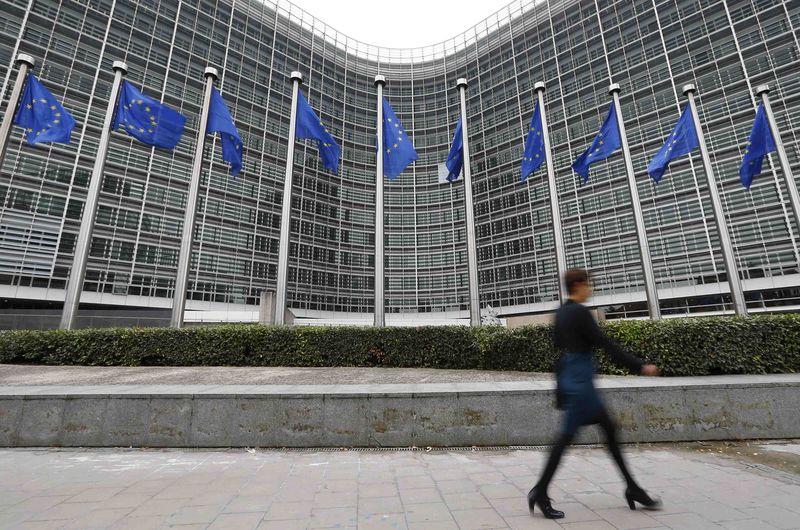By Marton Dunai
BUDAPEST (Reuters) - The European Commission is investigating whether Hungary's FHB (BU:FHBK) has benefited from illegal state aid following a complaint from its larger rival OTP Bank (BU:OTPB), according to documents seen by Reuters.
If the complaint from Hungary's biggest bank is upheld it could lead to the state funds being withdrawn, hindering Prime Minister Viktor Orban's plans to increase the strength of domestic lenders such as FHB.
FHB, a mortgage lender whose biggest owner and chairman is oligarch Zoltan Speder, rejected the allegations, saying it had respected Hungarian and EU laws.
The OTP complaint, filed to the Commission last year and seen by Reuters now, states that FHB was the main beneficiary of around 150 billion forints ($515 million) of taxpayers' money.
A spokeswoman for the EU's competition authority declined to comment on the specific case, but told Reuters that states are usually required to recover any aid deemed illegal.
OTP alleges that FHB sold some assets to state-owned Hungarian Post at an inflated price, and bought the state's stake in savings and loan lender Takarekbank at a discount.
OTP also complained about a 136 billion forint state capital injection in the Integration Association of Cooperative Lenders (SZHISZ), an umbrella group created in 2013 for savings cooperatives and Takarekbank. FHB joined SZHISZ last year.
OTP, which confirmed to Reuters that it had sent the complaint to the EU, said members of the savings and loan sector received an unfair market advantage due to the protection of SZHISZ and called the 136 billion injection illegal state aid.
"Such state aid and other state intervention... hurt the entire Hungarian economy while they benefit a single privately owned market participant," OTP said, alluding to FHB.
FHB declined to comment on the questions about the 136 billion forint buffer, but said that the sale to Hungarian Post was overseen by an auditor, and that it had secured extra guarantees to cover risks.
A government spokesman confirmed the European Commission's inquiry, saying that it had already answered its first questions about OTP's complaints.
Orban, who swept to power in 2010, put Hungary's economy on a firmer footing but his use of one of Europe's highest bank taxes and other measures debilitating the financial sector drew criticism from international partners.
His right-wing government has set about overhauling the financial sector and injected 136 billion forints of capital to help boost the stability of savings and loan cooperatives in a banking market dominated by OTP and foreign-owned lenders.
OTP had complained in September about the government's interference in the banking sector, which counts Austria's Raiffeisen (VI:RBIV) and Erste (VI:ERST) and Italy's Intesa Sanpaolo (MI:ISP) among its ranks.
"I think it is deeply unfair to interfere artificially in market competition," OTP Chief Executive Officer Sandor Csanyi told a business forum in September. "And that is what happened with (SZHISZ)."
He said the 136 billion forint capital injection was for SZHISZ to clean up the savings and loan sector. Instead, it ejected failing members, and commercial banks were forced to compensate clients of cooperatives that failed, to the tune of 100 billion forints.
Csanyi said SZHISZ should have covered that cost.
Asked why SZHISZ did not cover the savings and loan sector's failures, the government declined to comment. It also would not say whether the system was designed to help FHB in any way.
FHB was admitted to SZHISZ in September, then received a 30 billion forint capital hike, mostly from fellow members, in December, just before stricter central bank capital adequacy requirements kicked in on January 1.
